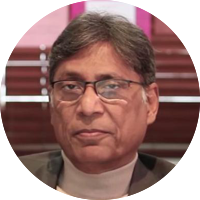Shehr-e-Babil and the tower of Babil
Emperor Namrood (Nimrod) is supposed to have ordered the construction of the Tower of Babil. He had been locked in a war of wits with Prophet Musa (Moses) over the question of God’s ssupremacy with respect to everything in the world. Since Namrood did not believe in Musa’s God, he thought of a nefarious plan. He ordered Haman, his political advisor, to have the tallest possible tower made to help him reach the skies and confront Musa’s God. Namrod got this tower made with much pride. What he had proposed, however, was duly disposed by God as his massive tower fell to ground as soon as it reached its completion. With the fall of the tower, God also isolated the language that the people of Namrood spoke and divided it into seventy two languages.
The fall of Namrood’s tower has two messages. First, God did this to stop Namrood’s people from becoming a unified force against Him by speaking in one language. Second, God did this to help people spread out in different directions and know each other better by interacting in different languages. Although this is not mentioned by name in the Quran but this story has certain similarity with the Biblical story.
While this is one version, there is yet another version which tells a story about the town of Babil, where people were swept away after the Great Flood. It was then that one language was divided into different languages and the people were then scattered in the same way as they had gathered.
Reference: Kya wo Namrood ki Khudaai thhi/Bandagi mein mera bhala na hua (Ghalib), Be-khatar kood pada aatish-e-Namrood mein ishq/Aql hai mahw-e-tamaasha-i-labe-baam abhi (Iqbal). Also see: https://www.rekhta.org/nazms/namruud-kii-khudaaii-ye-qudsiyon-kii-zamiin-noon-meem-rashid-nazms?lang=ur, https://www.rekhta.org/ebooks/babul-hakim-mohammad-sardar-khan-ebooks
Emperor Namrood (Nimrod) is supposed to have ordered the construction of the Tower of Babil. He had been locked in a war of wits with Prophet Musa (Moses) over the question of God’s ssupremacy with respect to everything in the world. Since Namrood did not believe in Musa’s God, he thought of a nefarious plan. He ordered Haman, his political advisor, to have the tallest possible tower made to help him reach the skies and confront Musa’s God. Namrod got this tower made with much pride. What he had proposed, however, was duly disposed by God as his massive tower fell to ground as soon as it reached its completion. With the fall of the tower, God also isolated the language that the people of Namrood spoke and divided it into seventy two languages.
The fall of Namrood’s tower has two messages. First, God did this to stop Namrood’s people from becoming a unified force against Him by speaking in one language. Second, God did this to help people spread out in different directions and know each other better by interacting in different languages. Although this is not mentioned by name in the Quran but this story has certain similarity with the Biblical story.
While this is one version, there is yet another version which tells a story about the town of Babil, where people were swept away after the Great Flood. It was then that one language was divided into different languages and the people were then scattered in the same way as they had gathered.
Reference: Kya wo Namrood ki Khudaai thhi/Bandagi mein mera bhala na hua (Ghalib), Be-khatar kood pada aatish-e-Namrood mein ishq/Aql hai mahw-e-tamaasha-i-labe-baam abhi (Iqbal). Also see: https://www.rekhta.org/nazms/namruud-kii-khudaaii-ye-qudsiyon-kii-zamiin-noon-meem-rashid-nazms?lang=ur, https://www.rekhta.org/ebooks/babul-hakim-mohammad-sardar-khan-ebooks
Additional information available
Click on the INTERESTING button to view additional information associated with this sher.
About this sher
rare Unpublished content
This ghazal contains ashaar not published in the public domain. These are marked by a red line on the left.

